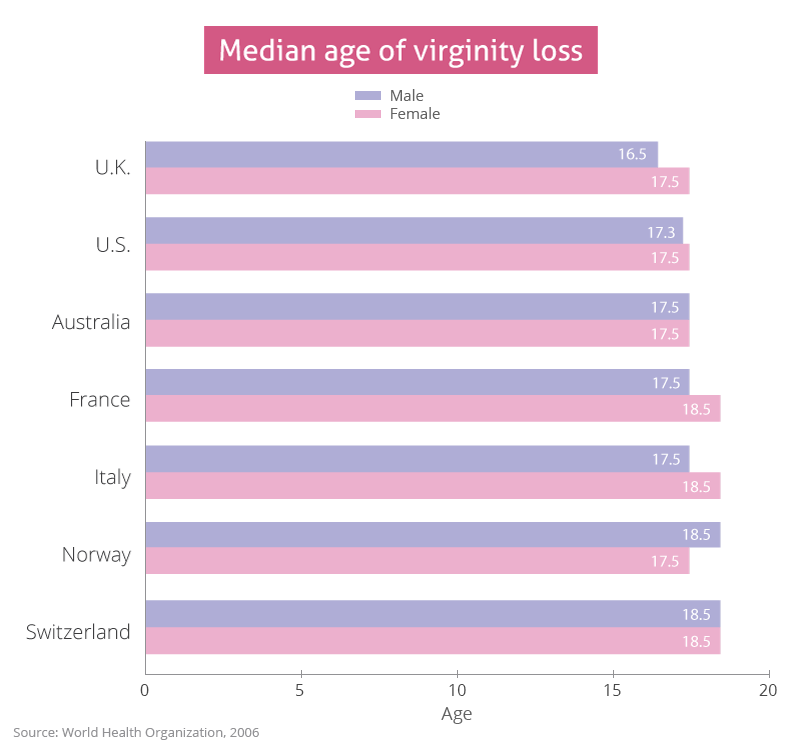On average american teenagers lose their virginity at age 17

On average, American teenagers lose their virginity at age 17.

When it comes to the topic of adolescent experiences, one interesting aspect that often comes up is when teenagers lose their virginity. While it is important to remember that every individual’s journey is unique and personal, we can still analyze broader patterns and trends in society. According to a study conducted by Superdrug Online Doctor, the average age at which American teenagers lose their virginity is 17.

It is worth noting that this average age is a generalization based on aggregated data, and individual experiences and choices may differ. Many factors can influence the age at which teenagers decide to have their first sexual experience. Cultural, social, and personal factors all play a role in shaping this milestone event in an individual’s life.
The study also reveals interesting findings regarding the differences between genders, showing that boys tend to lose their virginity slightly earlier than girls. While boys typically lose their virginity at around 16 years old, girls tend to experience this milestone at approximately 17.5 years old. Again, it is important to remember that these numbers are averages, and specific circumstances may vary.
Addressing the age at which teenagers lose their virginity extends beyond statistical analysis. It is essential to approach this subject with sensitivity, respect, and an understanding that every person’s journey is unique. While the average age provides a general framework, it is crucial to remember that there is no right or wrong age to lose one’s virginity. It is a personal decision that should be made when individuals feel ready and comfortable.
Furthermore, it is worth noting that societal attitudes towards adolescent sexuality can greatly impact young individuals’ experiences. Comprehensive sex education, open dialogue within families, and the availability of reliable resources can contribute to creating a supportive environment for making informed decisions about sexual activity.
In conclusion, while the average age for American teenagers to lose their virginity is approximately 17, it is important to recognize that making generalizations about such a personal and complex issue is challenging. Every individual’s circumstances are unique, and various cultural, social, and personal factors contribute to their choices. By fostering an environment of open communication and providing comprehensive sex education, society can support teenagers in making informed decisions about their own sexual journey.
Source: The Atlantic
Tags
Share
Related Posts
Quick Links
Legal Stuff

